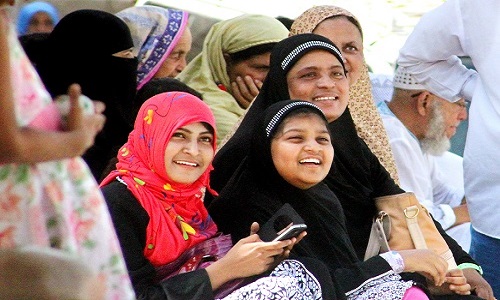3,813 total views, 1 views today
Property inheritance is a common tradition in Nigeria that cut across all ethnic groups. When a man dies, his properties, children and wife/wives are inherited by his family members. On the dead of a man, his body will be washed and the water will be given to his wife/wives to drink. She is also expected to sleep on the same mat with her dead husband. This tradition serves as a way to show their innocence. The hair of the widow is shaven; she will be robed in black cloth and stay indoor for forty days. All these are part of the mourning rites.
Any woman that is involved in the death of her husband is believed to be disturbed by the spirit of the deceased after the widow’s mourning rites. According to the tradition, she will be inflicted by mental illness, incurable diseases or death. This practice is still common in some parts of the country, especially in the eastern parts. After the burial ceremony and the completion of the burial rites, the family members are faced with the issue of the sharing of the properties of the deceased.
Properties Inheritance in the Olden Days
In the traditional era, the properties of the man are expected to be shared among his wives, children and kinsmen. The first male child (heir) claims the greater portion of the properties while the remaining ones are shared among the other people that are entitled to the properties. If the man was a polygamist, the first male child (irrespective of his position among the children) has the largest portion of the properties. In situations where the man died without a child, the properties are inherited among the kinsmen or brothers. They do this on the claim of keeping the wife from taking the properties to another man’s house while some do this because of their greedy nature.
Widowhood Inheritance In the Olden Days
Not only the properties are inherited but the wife of the deceased man (widow) is also inherited by the brothers. This practice is called “Levirate”. Levirate is a practice where the eldest living brother of a dead man lay claim to the wife/wives and children of his brother. This tradition is done to keep the family blood and the dead man’s properties flowing in the lineage. The brother has the role of performing social and sexual responsibilities to the wife and children of his deceased brother.
There are some cases where the wife refuses to marry the brother of her deceased husband. In such situations, the widow is left stranded without any inheritance from her husband. Widowhood inheritance has many disadvantages. There is high risk of transmitting sexual related diseases due to the transfer of wives to brothers. There is also competition among the wives which may lead to conflict, disagreement which may later result to jealousy.
Inheritance in the Modern Day
Property inheritance is still in practice in this modern day while widowhood inheritance has been reduced drastically. Sharing of properties is easy if there is a “will”. But, if not, chaos and conflict do occur during the sharing of properties. In situations where there are no documents or will on how the properties should be shared, the family members of the deceased do claim these properties, leaving the wife and children stranded. Some even kill themselves just to inherit the properties. Modernization has resulted to the decrease in the practice of these traditions. Women now have the freedom to reject being shaven or drinking the water used to bath her deceased husband. Some of them, if financial stable leave the country with their children to avoid the conflict that arise in sharing the properties of the deceased man.
